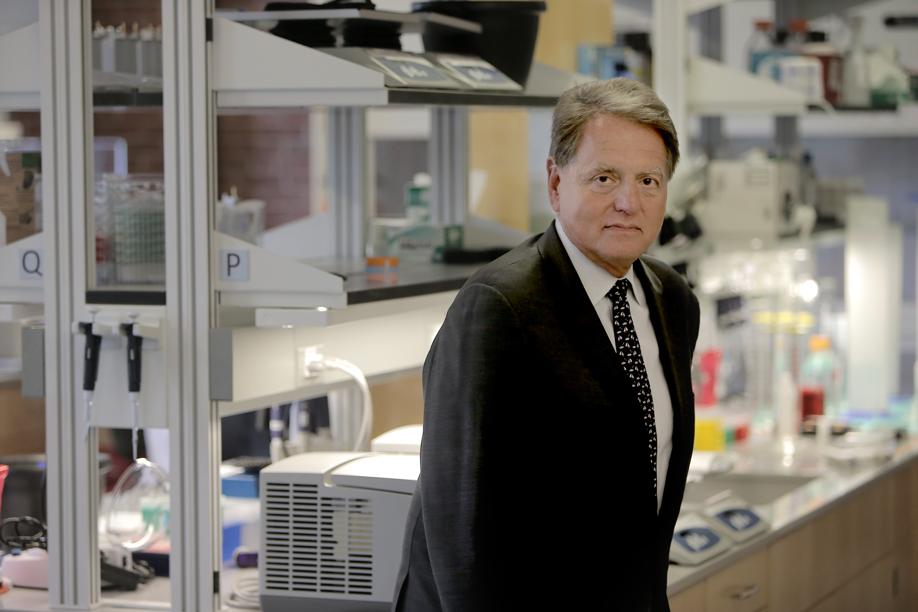
CAMBRIDGE — Given up for dead just five months ago, Sarepta Therapeutics Inc. has suddenly been reborn as one of the hottest stars in Kendall Square’s biotech constellation.
Sarepta’s stock closed near a record high Tuesday, up nearly 14 percent to $55.73, a day after the Food and Drug Administration issued its surprise approval of the company’s experimental drug for Duchenne muscular dystrophy. The run-up boosted Sarepta’s market value to $2.6 billion, and some analysts are now suggesting it may be an attractive takeover candidate.
There was more good news Tuesday when Sarepta learned the patent office had ruled in its favor in a long-running intellectual property dispute with a California rival, BioMarin Pharmaceuticals Inc., blocking potential royalty awards to a leading competitor.
The drug, sold under the brand name Exondys 51, will cost an average of $300,000 per patient annually. Duchenne strikes about one in 3,500 boys, who typically lose the ability to walk by age 12 and don’t live past age 25. Sarepta expects there are about 1,000 patients who could be treated with its drug, a subset of boys with Duchenne who have a gene mutation that makes them unable to produce a protein that can help bolster motor function.
This week’s abrupt turn of events ended months of uncertainty after an FDA advisory committee recommended against Sarepta’s drug in April. At one point, the company’s share price fell to just $8. The extended review included a hearing that was postponed by a blizzard in January and a dispute over the drug’s effectiveness that fueled a rift among FDA scientists. The tortuous process was capped by an attempted raid last week on Sarepta’s sales force.
Throughout the process, interim chief executive Edward Kaye said employees were heartened by the example of the 12 boys suffering from the muscle-wasting disease who took part in Sarepta’s clinical trial.
“One of the things that was important was to keep the morale up here,’’ Kaye said in an interview at Sarepta’s headquarters.
“Every time you get discouraged or depressed about what’s going on, you just think about what these boys and what the families are going through. And somehow whatever’s bothering you that day seems to pale in comparison . . .
“For me,’’ he said, “the one thing I kept thinking about was I would never want to have to go to those boys and tell them that I gave up and they didn’t have a drug.’’
Just last Friday, as Sarepta awaited the decision from the FDA, its entire sales force received offers to work for another biotech that’s marketing rare-disease therapies, Kaye said. He declined to identify the suitor, but described the overture as business as usual in the biotech industry.
“Nobody quit. They really wanted to help the patients with Duchenne,’’ Kaye said. “If they had left, it would have been challenging. To say this approval came in the nick of time would be an understatement.’’
Sarepta recently assembled a 50-person commercial division, including sales people and specialists who can walk patients through the process of getting reimbursement from health insurers. The company expects to have 235 employees by the end of the year and to add another 50 research and commercial employees next year. It is closing its original site in Corvallis, Ore., this fall and opening a small plant in Andover.
Kaye said the launch will begin as early as next month even as the company undertakes a larger clinical trial required by the FDA to confirm the drug’s effectiveness.
The $300,000 price tag drew criticism from a consumer group but was defended by some patient advocates who have backed Sarepta. Kaye said the cost was consistent with that of other rare-disease drugs, such as treatments by Vertex Pharmaceuticals Inc. for cystic fibrosis and Sanofi Genzyme for Gaucher disease. The medicine will be discounted for patients on Medicaid and covered by commercial health insurance for most other patients.
The research and clinical studies for Exondys 51 were partly funded by three Duchenne patient advocacy groups. None of those owned or received stock in Sarepta.
The founder of one of those groups, Debra Miller of CureDuchenne, said she thought the price was reasonable.
“Sarepta has more than a decade of development investment in this drug,’’ she said, adding that “the drug is very expensive to manufacture and deliver, and they are creating a comprehensive patient support infrastructure.’’
But sharp disagreements among medical experts on the Sarepta drug’s effectiveness prompted John Rother, president of the National Coalition on Health Care, which represents 85 consumer groups, health care providers, and insurers, to suggest Sarepta’s treatment should be priced on the basis of how well it works in Duchenne patients who take it.
“In this case, there is very little evidence that the drug will be effective,’’ Rother wrote in an e-mail.
“Pricing a drug of doubtful effectiveness at $300,000 is clearly unsustainable for payers and families. We all pay for this one way or another. If the drug proves ineffective, the manufacturer should offer refunds. Not to do so would be unethical.’’
Kaye defended the price, saying, “The profit we make on this drug is going to be turned back into research and development.’’
Sarepta hopes to file a new drug application for its Duchenne treatment with the European Medicines Agency by the end of the year, Kaye said.
He said the company is also moving forward with clinical trials of two other Duchenne therapies that work in a similar way but would treat patients with different genetic mutations from the one treated by Exondys 51. Unlike the trial conducted for Exondys 51, in which no patients were given a placebo, the FDA is requiring that a third of the patients in those trials be given a placebo for two yearS before they transition to the experimental drug.
Robert Weisman can be reached at robert.weisman@globe.com. Follow him on Twitter @GlobeRobW.



